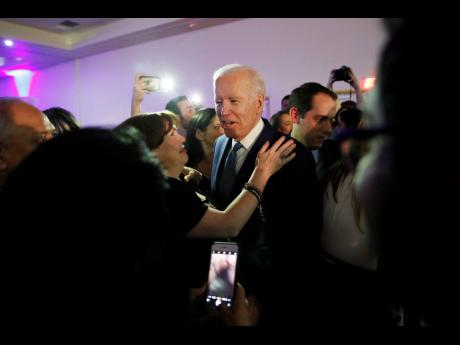UNITED STATES | Democratic hopefuls now test strength among minority voters
COLUMBIA, South Carolina (AP):
For I.S. Leevy Johnson, the Democrats’ search for a challenger to take on President Donald Trump is personal.
“There is what I call an ‘ABT mood’ in the black community: Anybody but Trump,” said the 77-year-old, who was the first black graduate of the University of South Carolina’s law school. “It has people of colour very motivated and excited about voting this time, because they know how his administration has adversely affected them.”
Now, as the election calendar turns to Nevada and South Carolina, states with substantial minority populations, that ‘anybody’ moves closer to being identified. But the next stage in the nominating fight will test candidates such as Senators Bernie Sanders of Vermont and Amy Klobuchar of Minnesota, and Pete Buttigieg, the former mayor of South Bend, Indiana. Their success thus far has come in front of overwhelmingly white electorates in Iowa and New Hampshire.
It’s also a potential last comeback opportunity for former Vice-President Joe Biden. He finished poorly in those first two contests, but argues he has durable support among the minority voters who will soon make their choices.
Nevada’s caucuses are this coming Saturday and will feature a growing population of Latinos, African Americans, Asian Americans and Pacific Islanders. Yet, no single place in the early going is as important as South Carolina. Up to two-thirds of voters in the February 29 primary could be African American. Biden, more than any other candidate, must show he can win their allegiance.
One candidate who will not be tested in Nevada or South Carolina is Mike Bloomberg, the former New York mayor and billionaire owner of a financial services and media empire. Bloomberg has spent heavily from his personal fortune in states with sizable minority populations that will vote in the March 3 primaries. The Super Tuesday contests are the first where his name will appear on the ballot.
It adds up to a muddled field that lacks clarity, even after Iowa and New Hampshire had their turns. Moderates have splintered their votes and created space for Sanders, a self-described democratic socialist, to take on the mantle of a front-runner without having reached 30 per cent in either of the first two voting states.
That intensifies the spotlight as minority voters in Nevada and South Carolina in trying to clarify the party’s search for ‘anybody’ to match against Trump.

